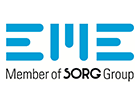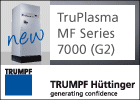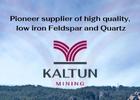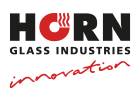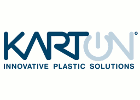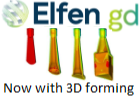Leading European glass container manufacturer, Vidrala, has announced that its Science-Based Targets (SBTs) have now been validated. The targets, the most ambitious of their kind, will ensure the organisation operates in a way which helps prevent the planet’s temperature from rising more than 1.5°C compared to pre-industrial levels.
The news represents the next step in Vidrala’s journey to create a sustainable future and make the first net-zero carbon glass containers.
This is a pivotal moment for the organisation as it becomes one of the first in its industry to have Science-Based Targets approved – the framework used to ensure companies’ emissions targets are in line with climate science.
Vidrala is aiming to reduce its Scope 1 and 2 greenhouse gas emissions by 47%, and its Scope 3 emissions by 28% by 2030, helping prevent the worst effects of climate change and future proofing the company.
It is thought the subsequent emission-reducing activity being rolled out across the group will allow Vidrala to become the most sustainable glass business in the world by 2030.
Vidrala’s new targets closely follow a range of ground-breaking environmental activity at its plants throughout Europe. These include the 2021 project with Glass Futures which pioneered the development of the world’s most sustainable glass container using biofuel, and the recent creation of a district heating network around its facility in Corsico, Milan. The latter scheme is now improving air quality in the area and reducing the amount of CO2 being released into the atmosphere by 3,000 tonnes a year. This is all while providing a sustainable supply of energy for the local populace.
Vidrala’s SBTs will pave the way for similar bold environmental initiatives which will ensure the company has a positive impact on its communities, while safeguarding the planet’s future.
This will include creating some of the world's most sustainable glass furnaces, making ground-breaking investments in more environmentally friendly methods of logistics, working with cutting-edge suppliers, and ultimately creating the first zero-emissions glass bottle.
Environmental consultancy, Carbon Intelligence, worked with Vidrala to support its submission to the SBTi. Susie Chalk, Associate Director, added: “Vidrala is leading the way for manufacturers who want to improve the environmental impact of their own value-chain as well as that of their customers. The ground-breaking programme they have in place shows that ambitious change is possible in an industry perceived as difficult to decarbonise.”
Director of Sustainability at Vidrala, Fiacre O’Donnell, commented on the news:
“Science Based Targets are the globally recognised, externally verified gold standard in measuring corporate climate action and we’re delighted that our ambitious goals have been approved.
“We are committing to science-based targets to safeguard our future and make good on our long-term duty to protect our people and the planet.
“By being more innovative in our way of thinking, and constantly seeking new ways to reduce our greenhouse gas emissions, we'll protect and grow jobs, futureproof our business, and continue to create the most sustainable glass containers in the market.”
Vidrala CEO, Gorka Schmitt, added: “We believe that Vidrala has the power to do good, and we know that to be able to have a positive impact, we must be commercially viable in an increasingly environmentally driven world.
“Signing up to SBTs makes business sense and will give us a more attractive proposition for like-minded customers and partners.”
The SBTs were validated by the Science-Based Targets initiative (SBTi). The SBTi is a partnership between CDP, the United Nations Global Compact, World Resources Institute (WRI) and the World-Wide Fund for Nature (WWF).



